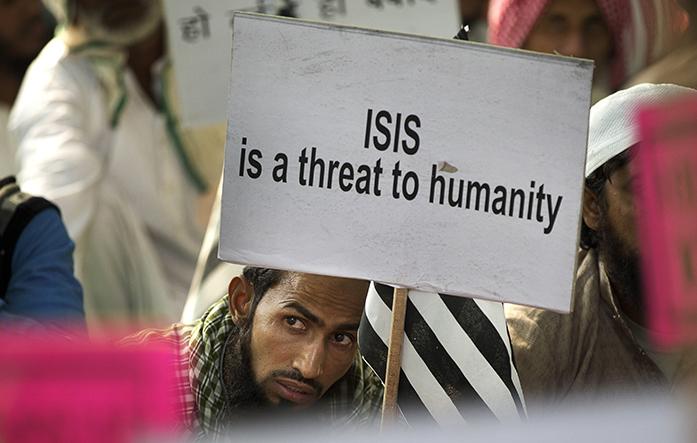Jacob Prall
[email protected]
ISIS has suffered a series of setbacks and defeats significant enough to spur tentative optimism. What’s important to remember is that ISIS is not just occupied territory but an idea. ISIS’s perversion of Islam is a force itself, and the end of the group will not bring an end to radical thought or extremist activities. All that said, things are looking a lot better on the ground.
In Syria, ISIS territories have shrank by 20 percent. In Iraq, it has lost 40 percent of its territory. With time, experience, and U.S. training, Iraqi special forces are proving increasingly competent and have successfully been pounding ISIS back. At the same time, Kurdish forces in northern Iraq and eastern Turkey are organized and have their own successful campaigns.
The Syrian situation is more difficult, because ISIS is one of three major forces fighting in the area. Until the civil war is ended, a united front will be impossible to find.
Reports of large pay cuts, desertion, and short staffing in the group are indicators of the air campaign’s effectiveness. The primary targets have been financial infrastructure, oil refineries, and transportation vehicles. Just a year ago, ISIS was a financial powerhouse, making up to $50 million a month. Air strikes and the low cost of oil have undermined ISIS’s ability to provide for the people it presides over and pay its fighters. ISIS checkpoints have smaller staffs or are disappearing entirely. As foreign fighters and manpower become increasingly harder to find, ISIS will field smaller armies and maintain less territory.
The campaign against ISIS is a coalition effort. Should that effort be successful, the insistence by the Obama administration not to field large armies on the ground could become a precedent for future military endeavors. The coalition instills a sense of international cooperation and urgency. U.S. and European air-force operations, combined with local allied field armies and support from neighboring countries (most notably Turkey and Jordan in the fight against ISIS) could become the go-to foreign-policy solution. It certainly costs a lot less for the members involved and offers a lot more agency to the war-torn regions. Ideally, the aid from global powers will ensure a more stable environment after the war has ended.
What will the end of the war on ISIS look like? Terrorism will still be a threat, certainly. Extinguishing the beacon of hatred that is ISIS might be a net positive for antiterrorism globally, but the attitudes of ISIS will live on. Stability and infrastructure is the only long-term solution. Syria will still be in shambles, and Russia will still exert its presence in the region. Careful diplomacy and hard stances on Syrian President Bashar al-Assad should be the routes taken for a sustainable situation. Kurdish forces will undoubtedly look for recognition, and perhaps the carnage in Iraq could lead to the formation of a Kurdish state. That might be wishful thinking, but Iraq has a lot of rebuilding to do. International pressure could be effective.
As for domestic politics, it’s not hard to imagine what Republican candidates will use as replacement ammunition for ISIS. The group has been a very useful buzzword in riling GOP crowds, and promising military action has been a surefire way to prove you’re a hawk in this election cycle. As ISIS disappears from the map, its legacy will still be felt in domestic politics. I hope the legacy is that of international cooperation and levelheadedness over wasteful destruction.










